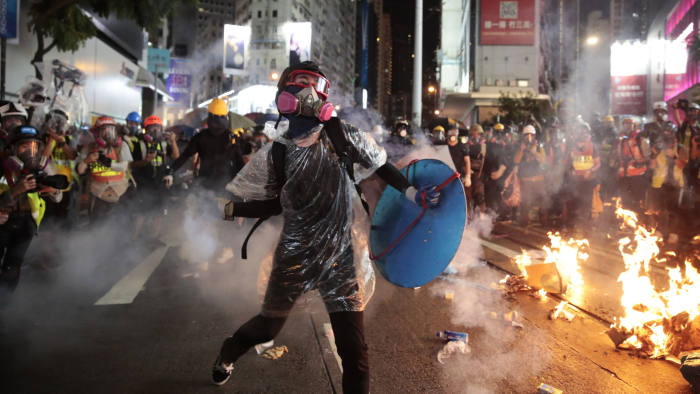Hong Kong protests: Three future dates to watch


A day after Hong Kong chief executive Carrie Lam (林鄭月娥 Lín Zhèng Yuè’é) announced that she would formally withdraw the extradition bill that sparked massive protests nearly three months ago — a move overwhelmingly seen as “too little, too late” by protesters — she held another press conference to defend her choices. The South China Morning Post reports that Lam:
- Insisted that the “decision to withdraw the contentious extradition bill was hers,” and said that Beijing was “supportive of her ‘all the way’ and fully understood and respected her calls over the entire three-month-long crisis.”
- Minimized the significance of the bill withdrawal — “[Lam] maintained she had not changed her mind over the bill, saying the legislation’s withdrawal was no different in substance to her earlier decisions to suspend it on June 15 or call it ‘dead’ on July 9.”
- Said that “the Independent Police Complaints Council (IPCC) would conduct a fact-finding exercise” on police conduct.
But as Antony Dapiran pointed out in our Slack Q&A yesterday, “protesters argue that this body is (1) stacked with pro-Beijing people; (2) has no proper investigative powers (can’t subpoena witnesses, etc), and is essentially a toothless tiger.”
The New York Times writes that there is “no sign of more concessions” coming from Lam in the near future:
[Lam] suggested on Wednesday that democratic reforms could eventually be a possibility, under the right circumstances. But she dismissed the protesters’ other demands. She did not address them on Thursday, instead promising to establish a “dialogue platform” to address the city’s troubles.
Demonstrators said they would carry on with protests that had been scheduled for this week, including plans to disrupt access to the airport on Saturday and to stage various small rallies. Plans for large-scale marches were also being discussed.
Dapiran further suggested that we watch for three dates in the coming months that could be significant for the protests:
- September 28 — anniversary of the start of the Umbrella Movement
- October 1 — National Day
- November 24 — district council election
If the elections “result in pan-dem candidates making big gains, that may be enough for the people to feel that their efforts on the street have converted into some kind of tangible outcome in the formal political system.” But a “new normal” of ongoing protests and unrest is just as likely an outcome, and in Dapiran’s view is “the most likely one.”
Other news and reports about Hong Kong:
“The home of pro-democracy media tycoon Jimmy Lai was firebombed in the early hours of Thursday,” according to the Financial Times (paywall), which added that Lai (黎智英 Lǐ Zhìyīng), “the publisher of Apple Daily, who was unharmed in the attack, is a vocal supporter” of the protesters, and “has been labeled a traitor by state media in mainland China.”
Pro-Beijing politicians are not happy: “Almost across the board, Hong Kong’s pro-Beijing camp expressed scepticism that the embattled leader’s sudden U-turn on a full withdrawal of the extradition bill would help stop the violence that has rocked the city for three months, with some even fearing it might fuel an escalation,” the SCMP reports.
“We remain a safe, open, welcoming and cosmopolitan society and an internationally connected, vibrant and dynamic economy,” reads an ad that the Hong Kong government is inserting into major international newspapers, per SCMP.
Reuters has a helpful explainer that addresses the question, How important is Hong Kong to the rest of China?
Panda politics in Germany: The Berlin Zoo is the home of two baby pandas, and the Guardian reports that “a competition to name them has increased pressure on the government of Angela Merkel, who kicked off a trip to Beijing with a large economic delegation on Thursday. The German tabloid Bild has called on Berliners to choose Hong and Kong as names for the cubs.”






